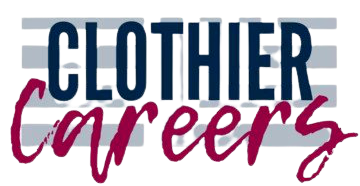Human Skills And Hard Skills – What’s The Difference?
You’ve probably heard of hard skills and soft skills before – but if you haven’t sat down to work out the nitty-gritty of what they mean and why both these skills are important – we’re here to help.
But before we get started, let’s talk about “soft skills” and why we call them human skills at Clothier Careers. Human skills are interpersonal skills that cannot easily be taught, and we think the term “soft” skills misunderstands how much of an asset these skills are.
Both human skills and hard skills are sought by hiring managers – and most people will have a mix of them already.
So, what’s the difference? And how can you present them on your resume?
Hard skills are those learned or gained through technical knowledge – they are often measurable, role-specific skills that allow people to perform industry-specific tasks. Academic qualifications, industry-specific certifications, speaking more than one language and your typing speed are some examples of hard skills.
Human skills are more difficult to teach. These skills are personal qualities and traits, they show how an employee might interact with their team or solve problems – things like communication, teamwork, critical thinking and decision-making fall under human skills.
Both hard (or technical) and human skills are an asset to any company – and presenting the right mix of these skills on your resume just might land you one step closer to your dream role.
Presenting hard skills
Often, hard skills are easy to prove – they can be verified through a degree, certification, or professional experience and are frequently industry-specific.
Hard skills are usually more sought after in high-level positions, while entry-level roles may not expect the candidate to have as much industry-specific experience. Remember – these are skills that can be taught and built on, so if your personality, work ethic, and human skills otherwise make you the right fit for the role – the company may choose to invest in you and your education.
Including hard skills in your resume and cover letter is easy. Slot your qualifications under a qualification or education subsection, and include industry-specific skills under a skill-set section. You can also include these skills throughout your professional experience, e.g. if a company is looking for someone with experience managing network security, you could put something like managed Network Security, this included implementing a new system to increase security under one of your past roles.
Presenting human skills
Frequently undervalued by candidates, human skills encompass skills like negotiation, leadership, effective communication, and teamwork. These skills play an instrumental role in ensuring workplaces run smoothly, they keep the cogs turning and are transferrable across all industries – which is why they are so important.
Whatever role you are applying for, chances are the description lists (at least) a few human skills – these are the skills you want to include on your resume, and reference in your future interview.
Place these skills under your skill-set section or work them into your resume using examples like led a team of five to create and implement a social media marketing strategy or negotiated with high-profile clients to secure long-term contracts.
Both human skills and hard skills deserve a prominent place on your resume – but if you are having trouble finding the right skills to put on your resume, or can’t quite figure out how your professional experience relates to your career goals, we can help. Reach out to us at info@clothiercareers.com or click here to see why a resume writer might be right for you.


